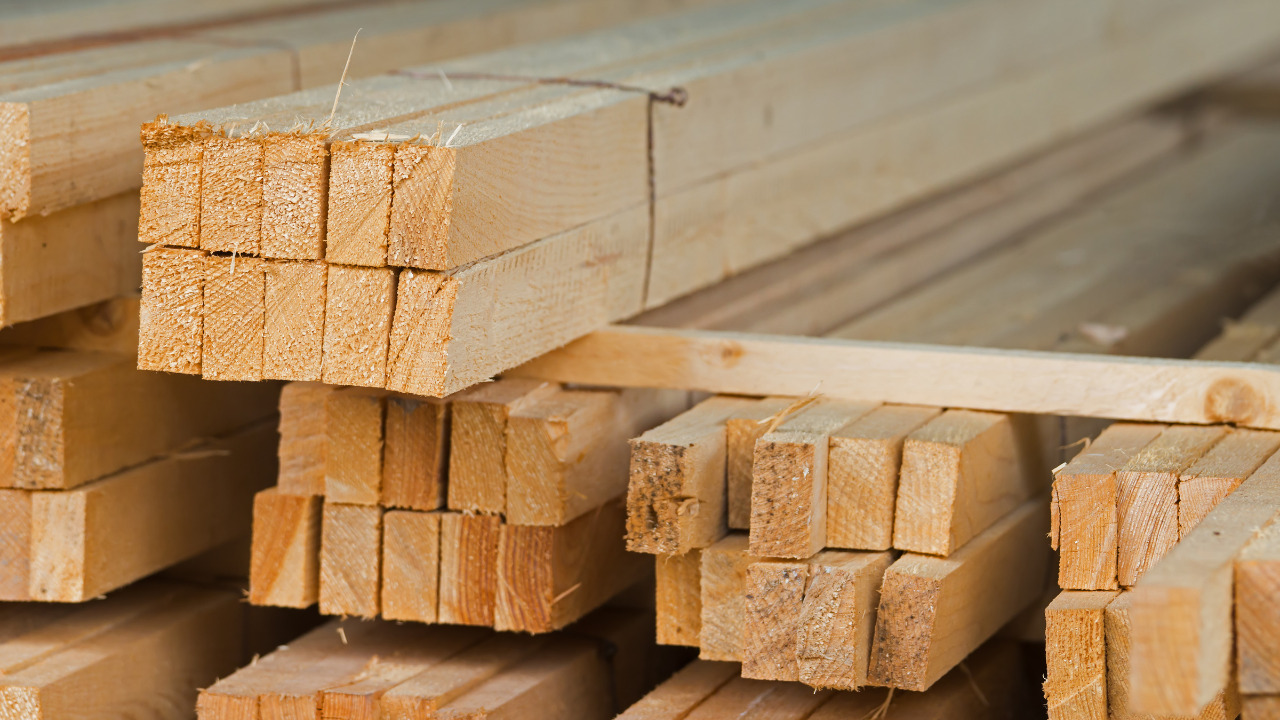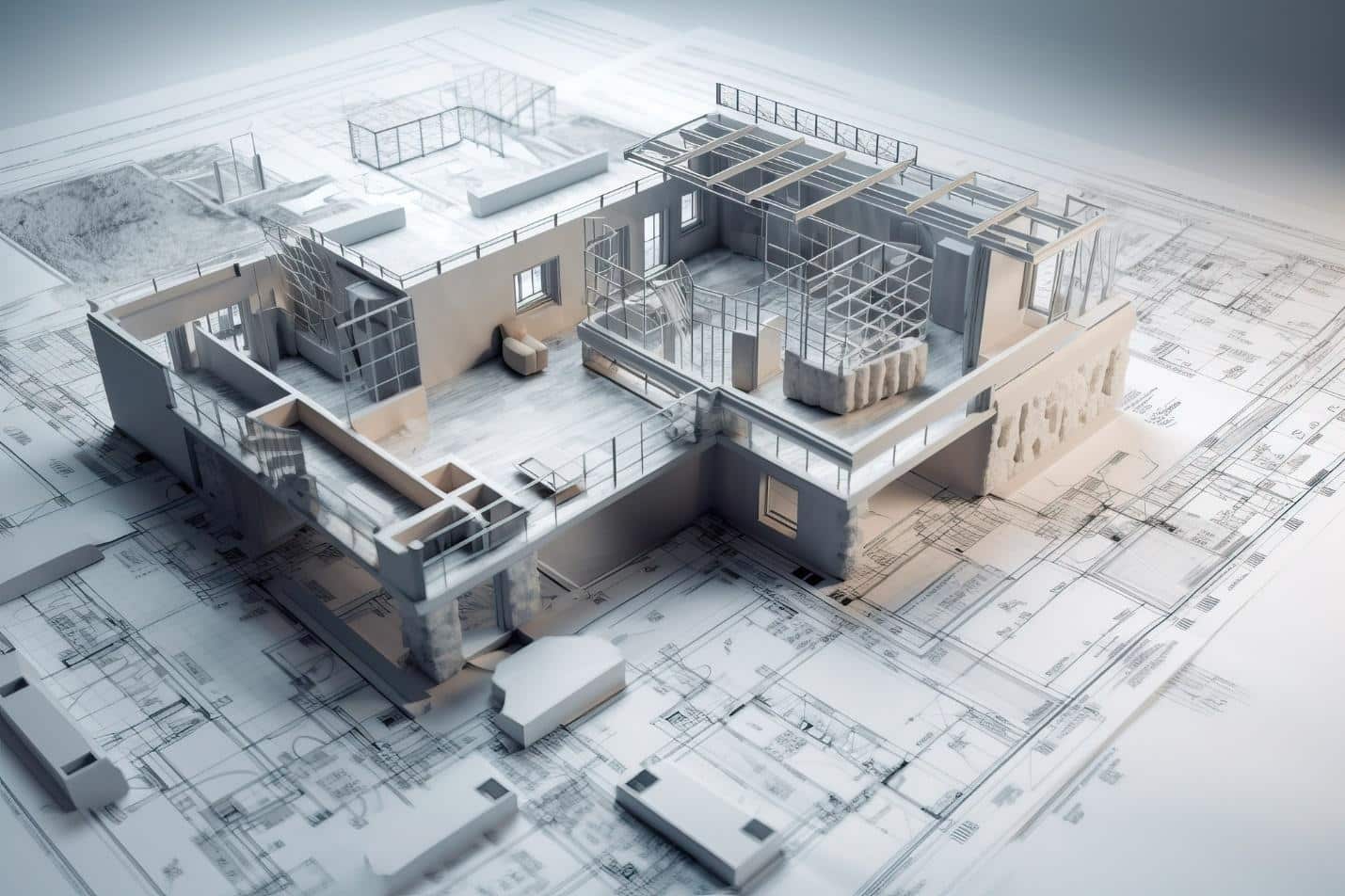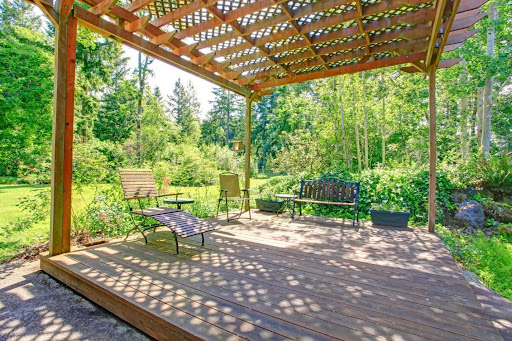Building a custom new home using a timber frame is a fantastic idea. It is elegant and renewable, and it will provide a cozy, ecological, and efficient setting.
Timber frames are typically utilized for simple building structures, such as a house, or smaller structures like a hardwood gazebo, porch, or vacation cottage.
The process includes initial design, engineering, creating construction drawings, ordering logs from the mill, fabrication, installation, and mounting. When choosing timber frame kit prices, type of wood, style, location, and project duration are all the factors that come under consideration.
Table of Contents
Pricing Options For Timber House Frames
Despite the fact that hardwood lumber can sometimes be slightly more expensive than other materials, a building’s price is paid upfront. Fresh-sawn oak costs less than processed hardwoods and is used in the frames. When selecting a package for a new timber frame home, customers have three basic options:
1. The Custom Timber Frame Kit
The custom timber frame kit taints all of the timbers for the wood frame home. This basic timber frame kit prices between $40 and $50 per square foot. The kit includes:
- Western Red Cedar, Spruce, or Douglas Fir Timbers
- Locally sourced logs from sustainable forestry
- The timber frame’s 3D models
- All required timber fasteners
- Installation drawings and precise 2-D shop drawings
- Specified-sized and designed timbers, and joinery made in accordance with the plan
- Two layers of a water-based, eco-friendly UV sealer or stain
2. The Lock Up Shell Kit
The Lock-up Shell Kit includes the frame as well as the roof, sidewalls, roof structure, doorways, and windows, and it costs approximately $150 per square foot. The Kit comes with the following:
- T and G Custom Timber Frame Kit (tongue and groove) decking on ceiling
- Fitted and insulated roof system R50
- R24 wall panel system Insulated
- Exterior doors and windows
- Trim for the external soffit, and fascia
- TJI system for upper floors as needed
3. Full Turnkey Package
A full turnkey package, which costs about $300 per square foot and includes every part of the building from the foundation to occupancy, is the whole package.
The following items will be part of the whole turnkey package Lock up shell Kit, Fitted Kitchen, Flooring, Attached Bathrooms, Foundation, Flooring, Plumbing, Exterior Roof Membrane, Electrical, and other Finishes.
This is only a rough estimate of timber frame kit prices to help people in developing a budget for the construction. Depending on the materials, location, and completion time people choose, this cost will fluctuate.
How Does the Process Work?
The process of timber frame construction involves four major steps-
1. Planning Of Design
Because the structure will be made up of prefabricated frames, the manufacturer requires a design. Many firms provide both bespoke services and a variety of predesigned structures. Before the frame building starts, it is also verified that zoning and fire regulations are met.
2. Frame Construction
The process begins with a sawmill, which removes the bark from recently cut logs before chopping them into square timbers.
Modern timber framing equipment includes CNC technology, which transforms the design of the timber frame into precise numbers that are then employed to automatically cut the timbers, significantly reducing building time.
To create a stunning and flawlessly finished result, this cutting-edge technology is employed in conjunction with traditional timber framing techniques.
3. External Cladding
Once the structure’s framework is finished and the roof trusses are in place, the final coat of external cladding is applied. Based on the desired finish, a wide range of materials can be used to create this.
This could be a layer of masonry or brickwork that is attached to the frame’s external surface by wall ties over an internal cavity.
For a more natural feel, polished wooden batons can also be overlaid with wooden shingles or paneling. Roof tiles felt, or another similar roofing material can also be used to cover the wooden layer that protects the trusses.
This adds a further layer of weatherproofing and enhances the overall appearance. This stage completes the framework of the building.
4. Erecting Frames
Platform frames are the most typical type of structure. The floor is built first, followed by the frames, with the floor serving as a building platform. With this approach, every story is constructed independently.
Another approach is the balloon frame, where the first-story floor is installed after the two-story wall parts are constructed on the floor. Three-story buildings do not apply this strategy. The size of the frames will decide whether they can be erected manually or require the use of a crane.
Conclusion
Building a wood-framed house is a multistep concept, however, modern tools and techniques for timber framing can significantly speed up the whole process such that it takes less time than previous construction practices. Additionally, timber houses can be tailored to almost any need and budget bracket.





